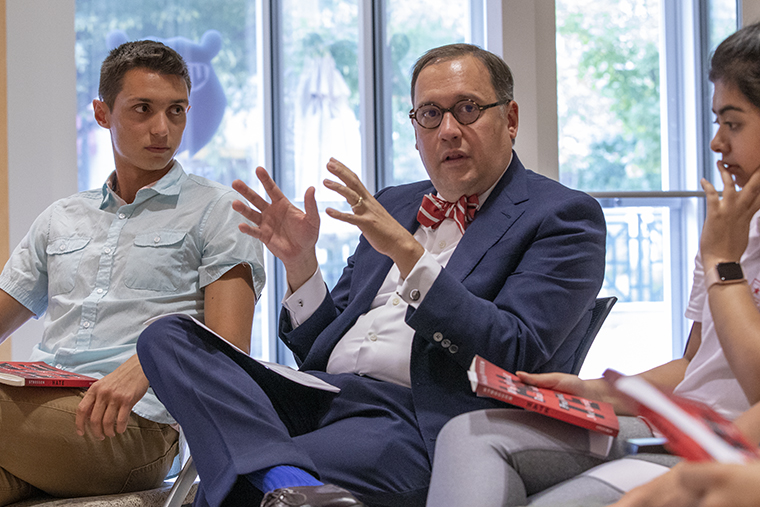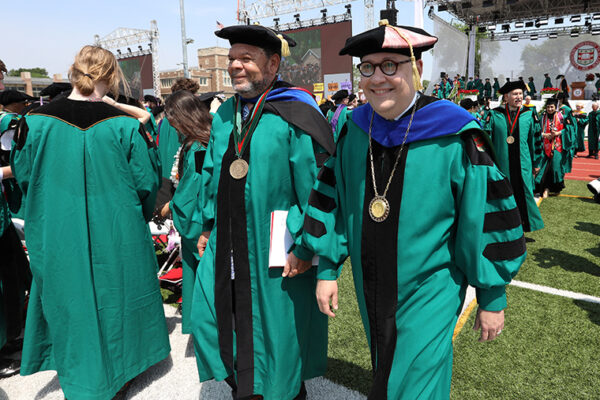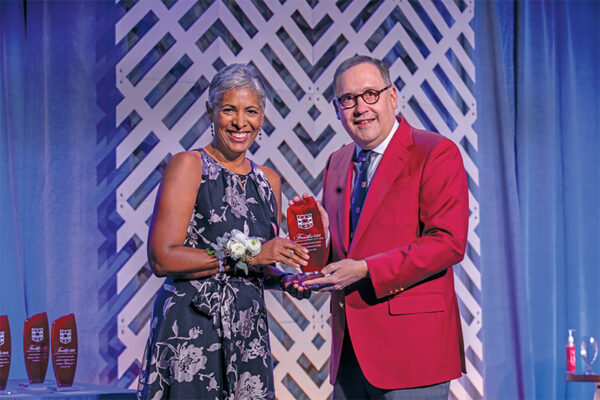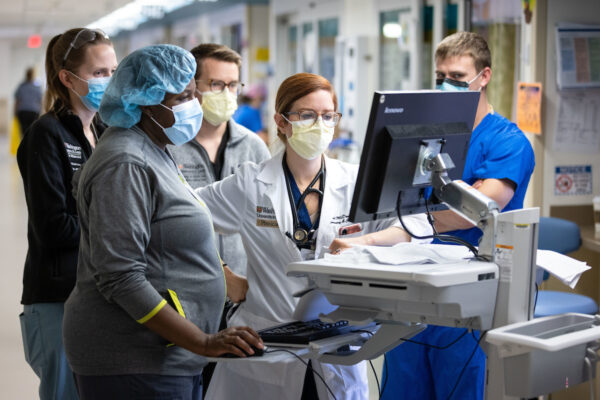Greetings to the friends of Washington University! A new academic year is upon us and with it, the promise of adventure: new connections, new discoveries and, of course, a bright new group of Washington University Bears. Welcome, Class of 2026!
This year’s class of first-year students represents a distinction worth celebrating: the first to be welcomed under a need-blind admissions policy, which is a giant step forward for educational equity and diversity across many categories.
The importance of diversity goes beyond educational access and the makeup of our student body, faculty and staff. Preparing students for engaged citizenship in a diverse world and in our democracy is a fundamental responsibility of our university. Thus, we welcome and encourage a wide diversity of viewpoints to be expressed in the classroom, at events and in discussion groups dedicated to encouraging civil discourse on challenging topics.
A terrific example is the work of the John C. Danforth Center on Religion and Politics, which actively seeks to engage students and community members in scholarship, research and dialogue that address the complexities that lie at the intersection of religion and politics. The center offers a minor in religion and politics, and the minor is gaining popularity with undergraduate students from many disciplines. Events sponsored by the center feature hot topic experts and attract a broad and diverse audience of curious learners.
Without opportunities for engagement across differences, communities can become echo chambers. If we allowed that to happen at WashU, we would no longer be able to meet our fundamental responsibilities to either our students or our democracy.
Chancellor Andrew D. Martin
The Center for Diversity and Inclusion also prepares students to live and work in an increasingly diverse world, and it offers a robust training program of workshops and dialogues designed to improve the campus culture and climate. A highlight of each year is the center’s Day of Dialogue and Action, at which students, staff and faculty explore topics like unconscious bias, navigating campus with a disability, meaningful LBGTQI+ allyship and more.
Students have the opportunity to engage with diverse cultures through celebration as well. WashU boasts more than 100 diversity groups that serve students, faculty and staff on the Danforth and Medical campuses. These groups inspire pride among members, eagerly welcome opportunities to connect and converse, and organize events to raise consciousness about their communities.
To be certain, we are not immune to hearing ideas that challenge or offend us, nor do we wish to be. Without opportunities for engagement across differences, communities can become echo chambers. If we allowed that to happen at WashU, we would no longer be able to meet our fundamental responsibilities to either our students or our democracy.
I’d be dishonest if I said we never have to navigate the fine line between offense and harm as we engage with tough issues as a community. We are, after all, still learning. But far more commonly, our students approach ideological opposition with curiosity, engage in civil discourse, exhibit strong critical thinking skills, and channel discomfort into action. I firmly believe they are well on their way to becoming the changemakers that we and the world need them to be.



